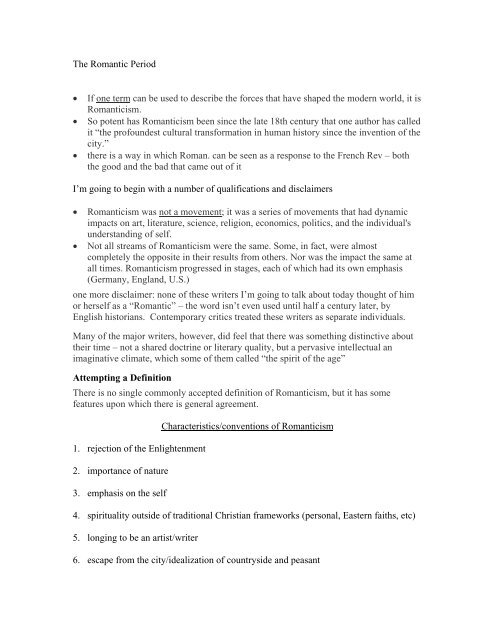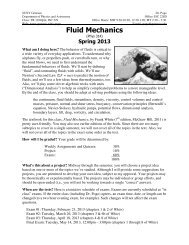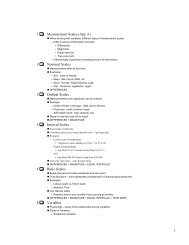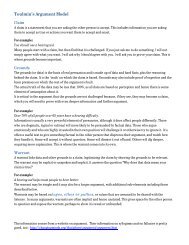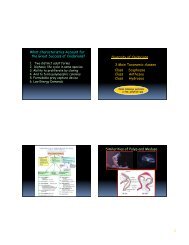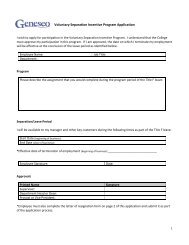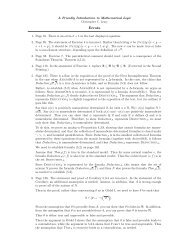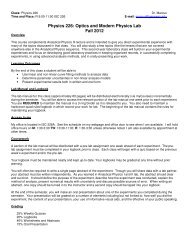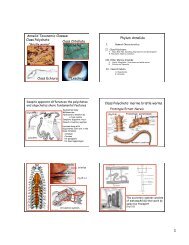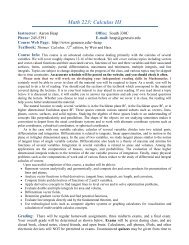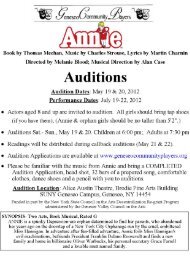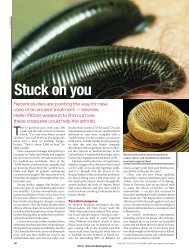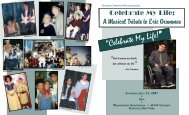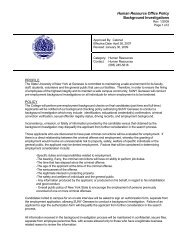Romanticism.
Romanticism.
Romanticism.
Create successful ePaper yourself
Turn your PDF publications into a flip-book with our unique Google optimized e-Paper software.
The Romantic Period<br />
• If one term can be used to describe the forces that have shaped the modern world, it is<br />
<strong>Romanticism</strong>.<br />
• So potent has <strong>Romanticism</strong> been since the late 18th century that one author has called<br />
it “the profoundest cultural transformation in human history since the invention of the<br />
city.”<br />
• there is a way in which Roman. can be seen as a response to the French Rev – both<br />
the good and the bad that came out of it<br />
I’m going to begin with a number of qualifications and disclaimers<br />
• <strong>Romanticism</strong> was not a movement; it was a series of movements that had dynamic<br />
impacts on art, literature, science, religion, economics, politics, and the individual's<br />
understanding of self.<br />
• Not all streams of <strong>Romanticism</strong> were the same. Some, in fact, were almost<br />
completely the opposite in their results from others. Nor was the impact the same at<br />
all times. <strong>Romanticism</strong> progressed in stages, each of which had its own emphasis<br />
(Germany, England, U.S.)<br />
one more disclaimer: none of these writers I’m going to talk about today thought of him<br />
or herself as a “Romantic” – the word isn’t even used until half a century later, by<br />
English historians. Contemporary critics treated these writers as separate individuals.<br />
Many of the major writers, however, did feel that there was something distinctive about<br />
their time – not a shared doctrine or literary quality, but a pervasive intellectual an<br />
imaginative climate, which some of them called “the spirit of the age”<br />
Attempting a Definition<br />
There is no single commonly accepted definition of <strong>Romanticism</strong>, but it has some<br />
features upon which there is general agreement.<br />
1. rejection of the Enlightenment<br />
2. importance of nature<br />
3. emphasis on the self<br />
Characteristics/conventions of <strong>Romanticism</strong><br />
4. spirituality outside of traditional Christian frameworks (personal, Eastern faiths, etc)<br />
5. longing to be an artist/writer<br />
6. escape from the city/idealization of countryside and peasant
7. awareness of not belonging to existing social order<br />
8. anti-intellectualism<br />
9. rejection of neoclassical aesthetic conventions/constraints<br />
10. against tyranny<br />
11. nationalism and reverence for “folk” culture<br />
DATES<br />
<strong>Romanticism</strong> did not erupt suddenly.<br />
in England 1798-1832 (years often given, but important to note this refers to the<br />
European tradition of <strong>Romanticism</strong>, and even more specifically to <strong>Romanticism</strong> in<br />
England, since that what concerns us – at this point in the course, anyway. next up is<br />
Mary Shelley, who is an English writer)<br />
what happens in 1798?<br />
Lyrical Ballads by William Wordsworth and Samuel Coleridge<br />
and it’s not just the poetry that is contained in this volume that’s revolutionary, but both<br />
men went out of their way to explain what it was they were trying to do with their poetry<br />
– so they add a good deal of theory to their poetic practices.<br />
Wordsworth adds a very famous “preface” to the volume of poetry which describes his<br />
theories of poetics<br />
he actually claims the poetry “had its origin in the French Revolution….It was a time of<br />
promise, a renewal of the world – and of letters.”<br />
He also set himself in direct opposition to the major lit figures of the 18th c, who, in his<br />
view, had imposed on poetry artificial conventions that distorted its free and natural<br />
development<br />
18th c theorists regarded poetry as an imitation of human life – analogy often used:<br />
“mirror held up to nature”<br />
Wordsworth, on the other hand, described good poetry as “the spontaneous overflow of<br />
powerful feelings”<br />
i.e. in other words, the source of a poem is not in the outside world, but in the poet<br />
himself
so the idea of a poem written in the first person, and which deals with the poet’s feelings<br />
was considered a minor and relatively unimportant genre, becomes the major form of<br />
poetry<br />
look at Wordsworth poem – how do you see the poem exemplifying either the list of<br />
Romantic conventions or playing out his own theorizing?


